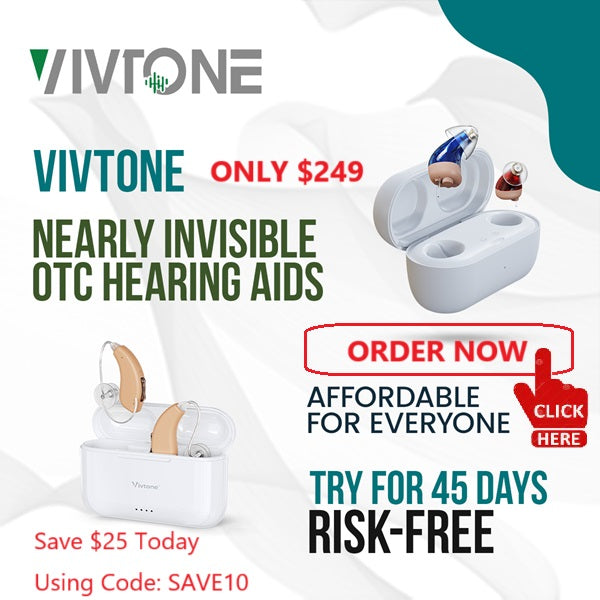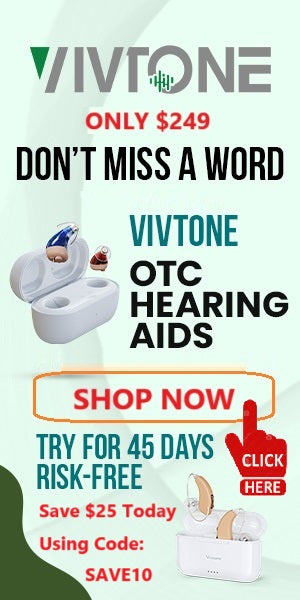Are OTC Invisible Hearing Aids Safe? What You Need to Know Before Buying
Quick Answer
Yes, OTC invisible hearing aids are considered safe for individuals with mild to moderate hearing loss when used properly, adhering to FDA regulations that limit output to prevent further damage. However, it's crucial to ensure a proper fit, maintain device cleanliness, and consult an audiologist to fully understand your specific hearing needs before making a purchase.
Introduction
When hearing loss starts affecting daily conversations, many people seek discreet solutions that won't break the bank. Over-the-Counter (OTC) invisible hearing aids emerged as an alternative to traditional prescription devices, offering convenience and affordability for those with mild to moderate hearing loss. While these devices provide an accessible option for better hearing, understanding their safety features, proper usage, and limitations helps consumers make informed decisions about their hearing health.
What Are Over-The-Counter Hearing Aids and Who Can Use Them?

What Are OTC Hearing Aids?
OTC hearing aids are those designed to amplify sound and are sold directly to the consumer over the counter in stores or online without a prescription or professional fitting. Unlike prescription hearing aids that require audiologist evaluations and bespoke programming, OTC devices come with pre-programmed settings or basic self-adjustments. Prescription devices include more sophisticated features such as noise reduction and precise frequency adjustments.
How Are They Regulated in the US?
In October 2022, the FDA created rules for over-the-counter hearing aids. Among the various requirements for ensuring the safety of the devices, manufacturers are supposed to implement output limits to prevent further damage to one's hearing. Clear labeling detailing intended use, features, and warnings on the device should be available. The FDA also requires a return policy and detailed user instructions for OTC hearing aids.
Who Are They Designed For?
OTC hearing aids are intended for individuals aged 18 years and above with perceived mild to moderate hearing loss. They are not recommended for children, severe hearing loss, single-sided deafness, or sudden hearing loss. Typically, users have difficulty hearing in noisy situations or need to turn up the volume of the television to hear it but can still manage to follow most conversations, especially in quiet settings.
Why Are They Becoming Popular?
There are three reasons why over-the-counter hearing aids are popular: OTCs are far cheaper than prescription devices, generally ranging between $100 and $1000, while prescription aids will set one back $2000-$6000. Secondly, they are immediately available and do not require multiple visits to an audiologist. Their small size, along with their directly available access, makes them accessible for adults seeking to address hearing loss discreetly.
Safety Issues You Need to Know About OTC Hearing Aids

Basic Safety Concerns
Improper fitting of OTC hearing aids can cause several problems. Devices that are too loose may fall out or provide inconsistent sound amplification. Overly tight fits can cause pain, skin irritation, and pressure sores in the ear canal. Poor hygiene practices during handling and insertion can lead to ear infections. Regular use of incorrectly fitted devices may result in earwax buildup, inflammation, or damage to the ear canal. Purchasing from unverified manufacturers increases the risks of defective products and inadequate customer support.
Safety Risks of Small Invisible Devices
The compact size of invisible hearing aids presents specific risks. Small components can detach and become lodged in the ear canal, requiring medical removal. Mini batteries pose choking and chemical burn hazards if swallowed. These devices are highly sensitive to moisture - sweat, rain, or humidity can damage internal electronics and reduce performance. Water exposure may also create an environment for bacterial growth inside the device.
When Medical Help is Needed
OTC hearing aids are only appropriate for mild to moderate hearing loss. Users should seek immediate medical attention for:
- Sudden or rapidly worsening hearing loss
- Persistent ringing or buzzing in ears (tinnitus)
- Dizziness or balance problems
- Pain or discomfort in ears
- Drainage from ears
- Hearing loss in only one ear
- Changes in hearing after head injury
These symptoms may indicate serious conditions requiring professional diagnosis and treatment beyond what OTC devices can address.
How to Use OTC Invisible Hearing Aids Safely

1. Select Your Device
Research multiple brands and read user reviews on reliable consumer websites and healthcare forums. Identify your specific hearing difficulties, such as trouble hearing in groups or on phone calls. Check device specifications for features that match your needs, including battery life, volume controls, and noise reduction capabilities. Verify the manufacturer's warranty, return policy, and customer support options.
2. Get the Right Fit
Study the user manual before first use. Test different ear tip sizes to find one that creates a secure seal without pressure points. Begin wearing the device for 2-3 hours daily, increasing gradually to allow your ears and brain to adjust. Remove the device if you experience any discomfort or irritation.
3. Keep Your Device Clean
Wash hands thoroughly before handling the hearing aid. Clean the device daily using the manufacturer's recommended cleaning tools and methods. Remove earwax and debris from speaker openings and microphone ports. Store in a protective case overnight in a cool, dry place away from direct sunlight and moisture.
4. Manage Batteries Safely
Only use batteries specified for your device model. Keep batteries in original packaging until use. Never put batteries in your mouth when changing them. Store unused batteries out of reach of children and pets. Recycle used batteries at appropriate collection points.
5. Common Problems
Stop using the device and contact the manufacturer if you experience:
- Persistent feedback or whistling sounds
- Inconsistent sound quality
- Physical discomfort or pain
- Skin irritation or itching
- Device malfunction
Seek professional help if problems continue after following manufacturer troubleshooting steps or if your hearing worsens.
Common Questions About OTC Hearing Aids: Facts vs. Misconceptions

Q1: Will OTC Invisible Hearing Aids Harm My Hearing?
No, these devices will not harm your hearing if used according to the instructions. The maximum output of the sound has been limited with safety in such FDA-approved OTC hearing aids. However, incorrect usage—for example, keeping volumes too high or wearing ill-fitted gadgets—can cause discomfort in your ear or affect hearing health.
Q2: Are All OTC Hearing Aids Equal in Quality?
Absolutely not. OTC hearing aids differ considerably in technology, features, and performance. The various manufacturers utilize different components and ways of processing sound. The prices reflect such differences-higher-priced models generally have more advanced features such as background noise reduction and smartphone connectivity. Quality varies in terms of durability, battery life, and customer support.
Q3: Is a Hearing Test Necessary with OTC Devices?
Not for purchasing them, but yes, a professional test of one's hearing is suggested before using the OTC hearing aids. It will determine the type and degree of your loss to see if OTC devices are right for your condition. This can also be used to monitor changes in hearing health through regular hearing evaluations and provide indicators of conditions that may need medical attention.
Making Safe Choices with OTC Invisible Hearing Aids

OTC invisible hearing aids are an easy option for adults with mild to moderate hearing loss, which is not only affordable but also convenient and safe if used correctly.
When considering options for managing mild to moderate hearing loss, the Vivtone Supermini-b CIC hearing aids offer an excellent choice. These FDA-registered OTC hearing aids are not only affordable but also convenient and safe when used correctly.
If you're considering an OTC hearing aid, start with a hearing test to make sure this is the right choice for your needs in hearing health, and reach out to customer support or healthcare professionals when questions arise.
Shop safe, affordable OTC invisible hearing aids. Perfect for mild hearing loss, offering clear sound and discreet wear for everyday needs. Shop safe, affordable OTC invisible hearing aids. Perfect for mild hearing loss, offering clear sound and discreet wear for everyday needs.




